An uncertain future for Swiss soldiers guarding the Pope
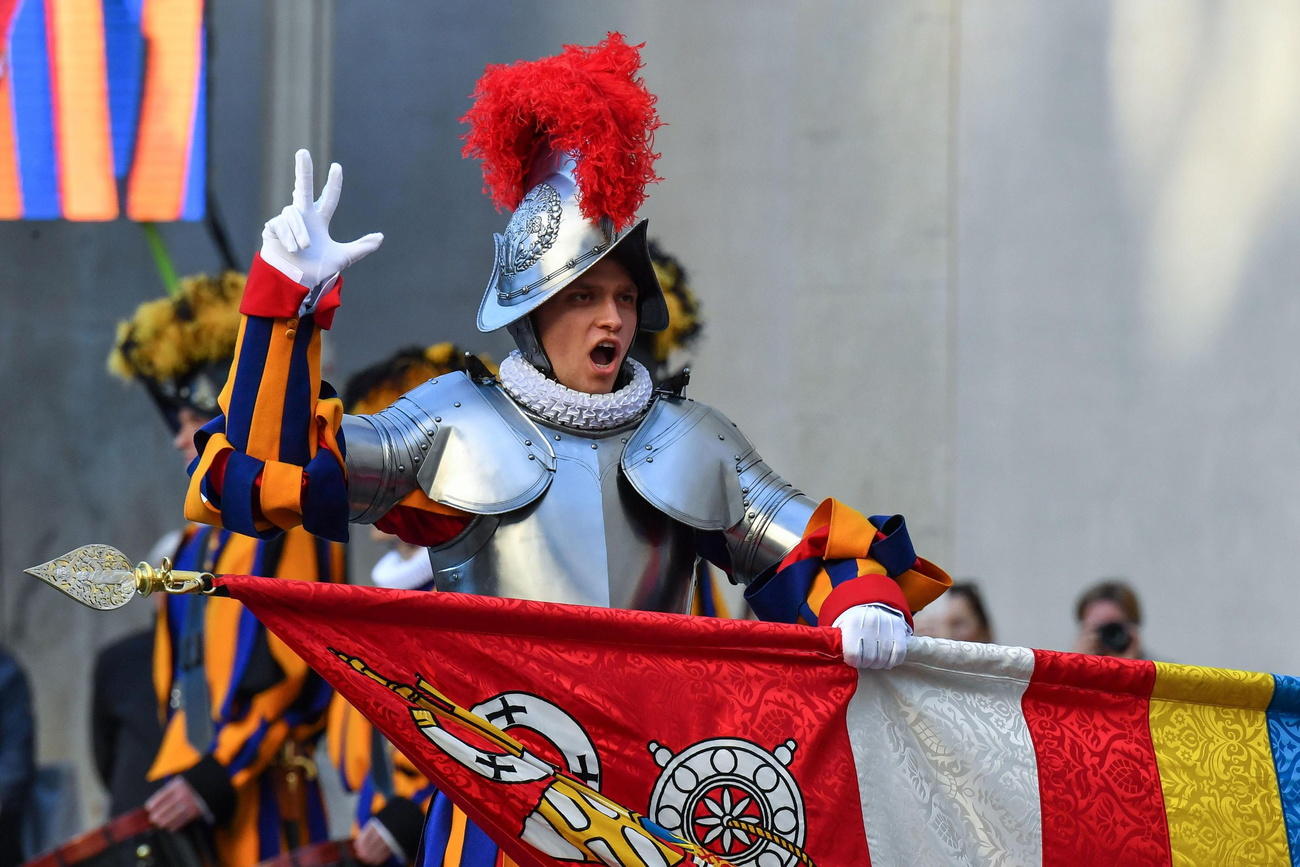
Every May, a new batch of young Swiss Roman Catholic soldiers swears allegiance to the Pope. But in recent years their numbers have been dwindling. What does the future hold for the Swiss Guards?
For over half a millennium (they were founded in 1506), the special unit has protected the head of the Roman Catholic Church.
This week, 23 more young soldiers were sworn in on May 6, a symbolic date that commemorates the 1527 sack of Rome.
But much has changed over the past 500 years, both in Switzerland and the Vatican. Here’s what it takes to become a guard, and why recruiting them has become difficult.
The soldiers are mostly known for their ceremonial role during official receptions and visits, where they can be seen decked out in impressively coloured uniforms, carrying swords and halberds, and sporting modern 3D-printed helmets.
However, over the past century, the guards have also increasingly taken on more and more concrete security tasks, in agreement with the Vatican’s police force and the Italian security services. As a result, they now sometimes carry pistols and pepper spray.
They also accompany the Pope on his international travels.
In a speech delivered to the new recruits, Pope Francis also informed them of a softer task: that of counselling (and usually turning down) the countless callers and petitioners who arrive at the Vatican with requests. They should perform this duty with “words of trust and a gesture of brotherhood”, he said.
Candidates must fulfil various criteria that whittle the pool down considerably.
Swiss Guards must be male and hold a completed apprenticeship or post-secondary degree; they must be Catholic, have an irreproachable reputation, and have successfully completed military school in Switzerland – where they learn the fundamental principles of discipline, military interaction, and camaraderie.
Candidates must also be ready to serve at least 26 months within the ranks of the papal guard.
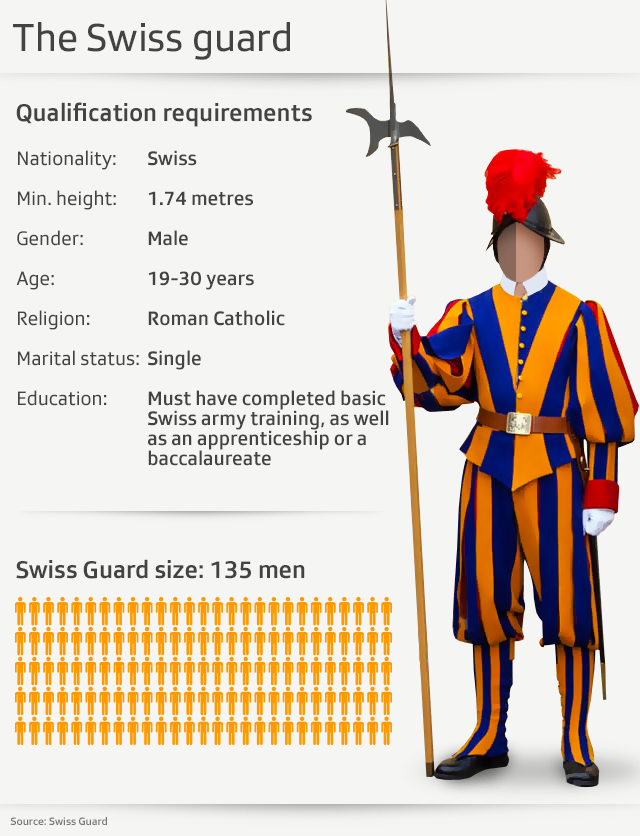
Finding young and qualified men that are ready to spend several years in the service of the Pope is not straightforward, and for three years now, fewer and fewer candidates have been applying.
The reason may be related to the current positive economic situation in Switzerland; it’s also due to the fact that new recruits are coming from a period of low birth rates. That’s according to Ruth Metzler-Arnold, a form Christian Democrat politician and current President of the Papal Swiss Guard foundation, which provides financial support for the institution.
As for finances, recruits receive board and lodging, as well as a monthly salary of some €1,500 (CHF1,711). It’s a decent basic income in Italy, but paltry by Swiss standards.
In Switzerland, the above-mentioned foundation now pays the tuition fees for children of Swiss Guard soldiers. It also tries to help reintegration in the Swiss or Italian labour markets, once the mandate has ended. It also plans to cover half of the contributions of guards to voluntary pension schemes in the future.
“Five years ago, a decisive measure was taken by the Pope to allow guards who have served for five years, irrespective of their grade, to marry,” explains Metzler-Arnold. Before, only officers and long-serving guards could marry.
Now, a guard who wishes to become engaged must be 25 years old and must pledge to remain in service for another three years.
Last year, the Swiss guards started a YouTube channelExternal link in an attempt to encourage new recruits to sign up.

More
Who are the Swiss Guards?
Translated from German by Domhnall O’Sullivan, swissinfo.ch

In compliance with the JTI standards
More: SWI swissinfo.ch certified by the Journalism Trust Initiative

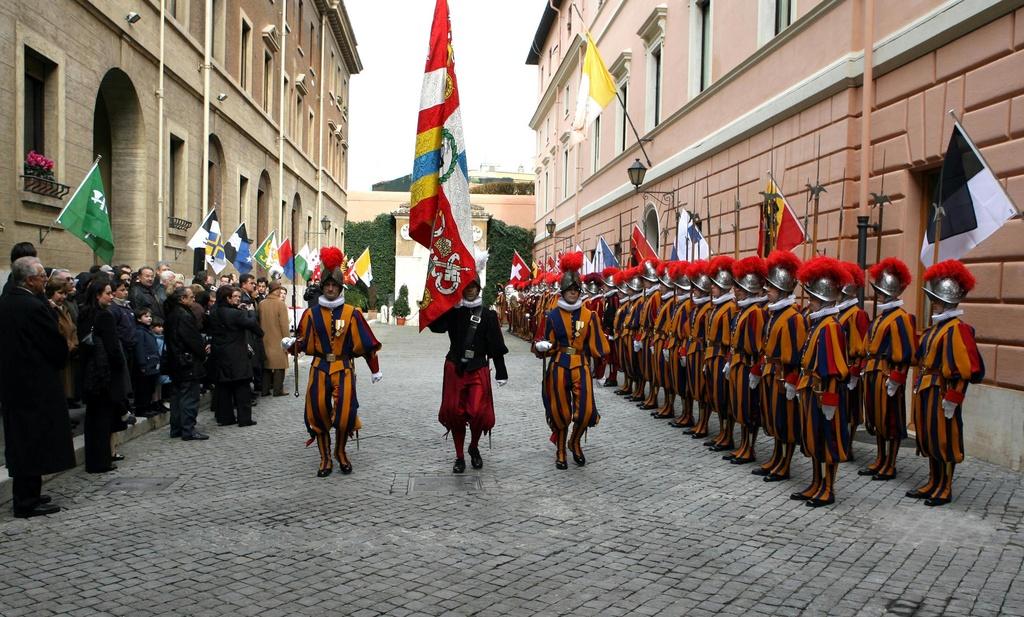
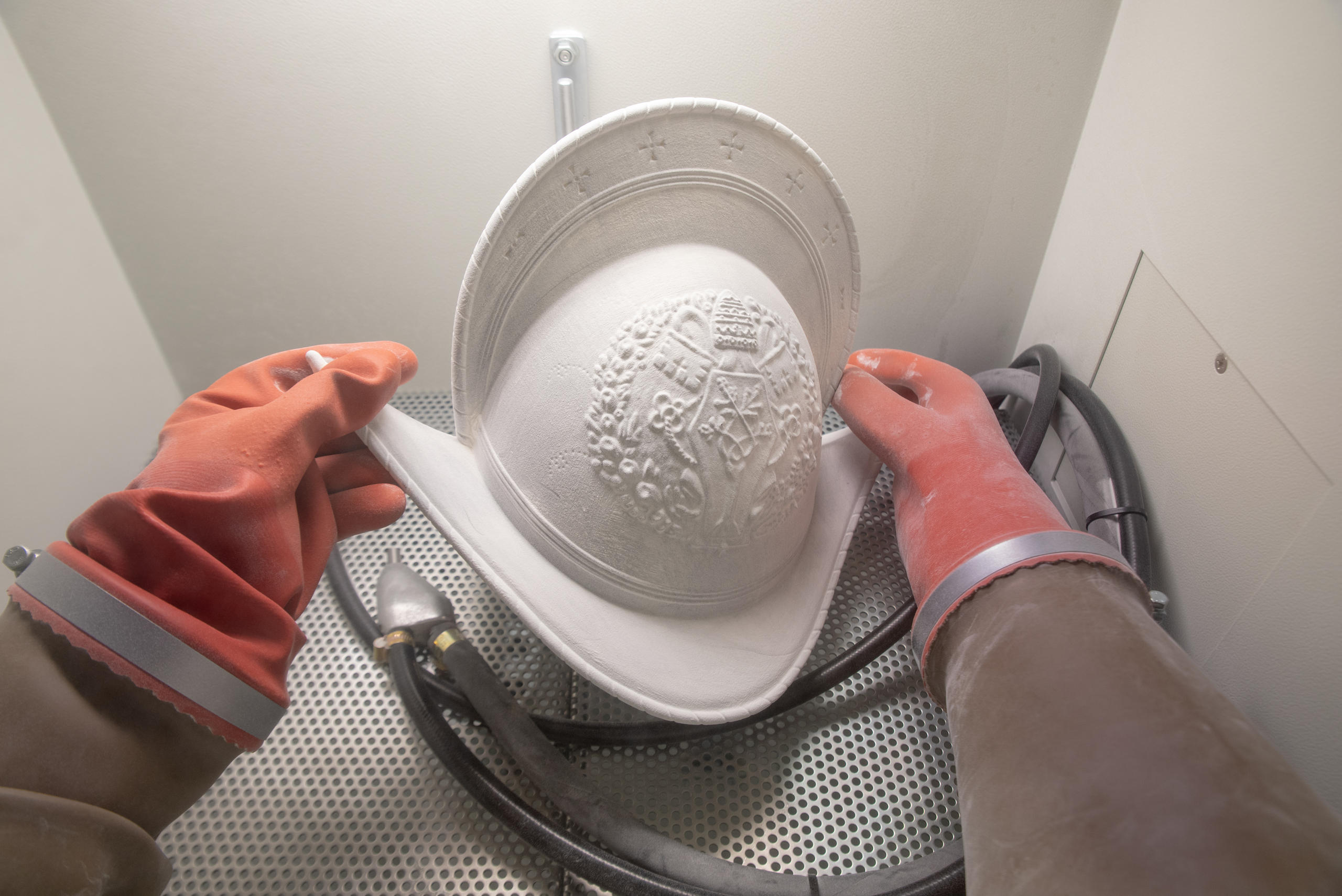
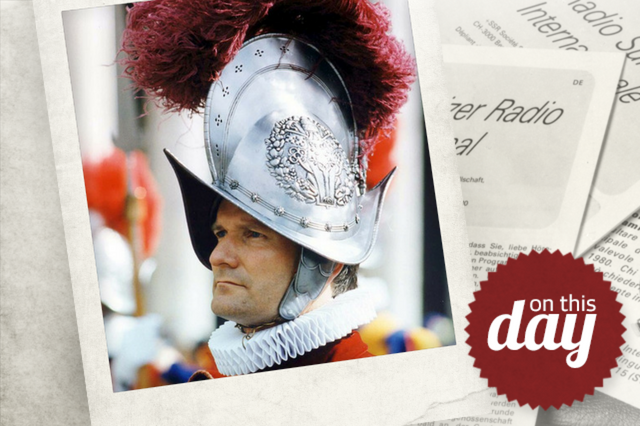
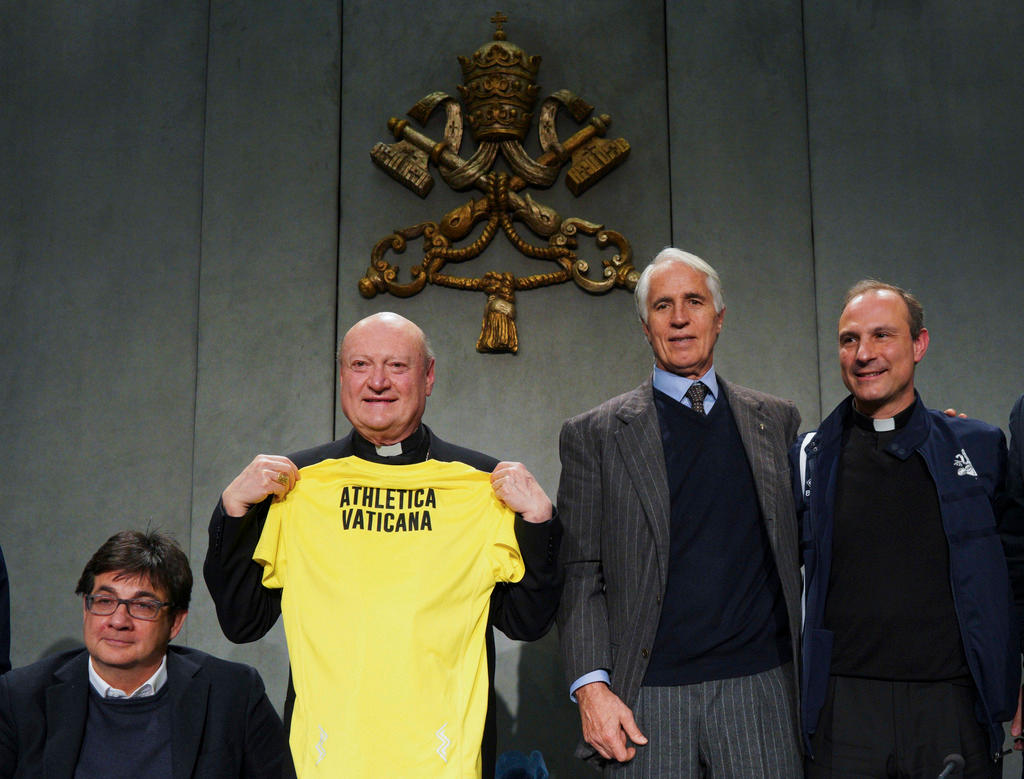
You can find an overview of ongoing debates with our journalists here. Please join us!
If you want to start a conversation about a topic raised in this article or want to report factual errors, email us at english@swissinfo.ch.